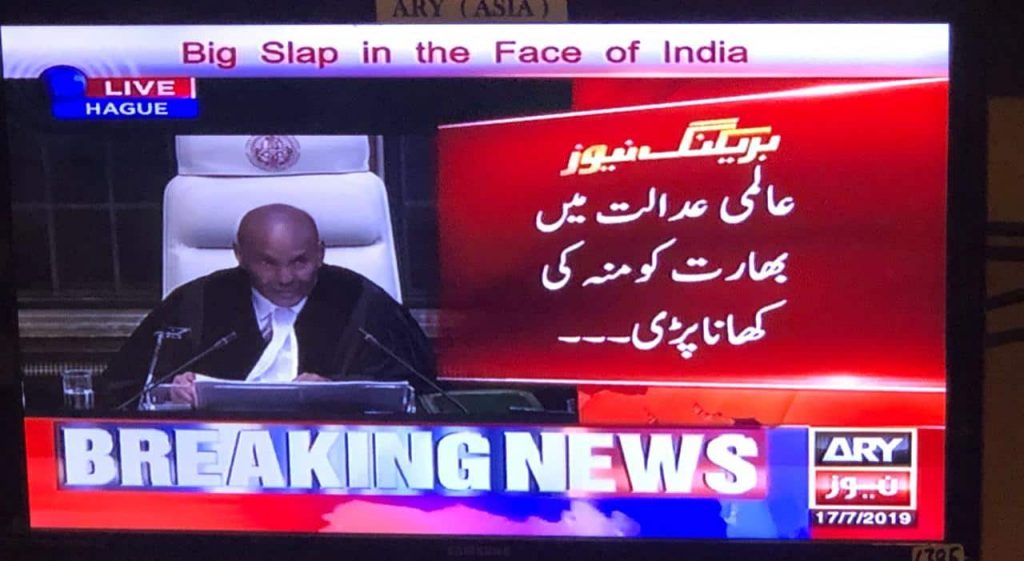With the International Court of Justice (ICJ) pronouncing the long-awaited verdict in the Kulbhushan Jadhav case, both Pakistan and India have claimed victory.
The narrative in Indian media paints a different picture of the judgment than the one shown by Pakistan. But how is that even possible?
PAKISTAN’S WIN:
According to the ICJ, Jadhav’s conviction and sentence by a military court were not to be regarded as a violation of Article 36 of the Vienna Convention, which India had claimed.
“As regards India’s claim based on the Vienna Convention, the court considers that it is not the conviction and sentence of Jadhav which are to be regarded as a violation of the provisions of the Vienna Convention,” read the verdict.

Article 36 states that foreign nationals who are arrested or detained be given notice without delay of their right to have their embassy and consulate be notified of the arrest and have consular officers visit them.
Among other Indian demands were the annulment of the military court’s decision and permitting Jadhav a safe passage to India. However, the same was denied.
Big win for Pakistan. India’s demand of release and repatriation of #KulbhushanJadhav rejected by ICJ.#KulbhushanVerdict
— Govt of Pakistan (@pid_gov) July 17, 2019
But what exactly is that India is celebrating?
INDIA’S WIN:
India had also demanded that Jadhav be tried once again by a civilian court after giving him consular access. No retrial was granted, however, Pakistan was ordered to grant the convicted spy consular access.
India also demanded the relief of “review and reconsideration” for its spy, which ICJ has granted, but by means of Pakistan’s own choice.

It means that Islamabad is now required to judicially review Jadhav’s trial and assess if denial of consular access prejudiced his trial.
FOREIGN MEDIA:
Meanwhile, international media reports focused on the ICJ’s directive to Pakistan to review its death sentence to Kulbhushan Jadhav.
“World Court Orders Review of Pakistan Death Sentence for Indian Convicted of Spying”, The New York Times‘ headline said. The Washington Post story on the judgment said: “Alleged Indian spy on death row in Pakistan wins reprieve from execution”.
British media also focussed on the part of the ICJ judgment which went in India’s favour. “UN court orders Pakistan not to execute Indian man accused of spying” The Guardian said in its report.
KULBHUSHAN JADHAV:
Commander Jadhav — an Indian Navy officer working for Indian covert agency Research and Analysis Wing (RAW) — was arrested on March 3, 2016, from Balochistan after he entered Pakistan from Iran.
Jadhav was tried in a military court that sentenced him to death for espionage and subversive activities. In a reaction to the move, Pakistan’s relations with neighbouring India tensed and New Delhi approached the ICJ to hear the case.
On May 18, 2017, the ICJ had ordered Pakistan to halt the execution of Jadhav until a final decision was made.







